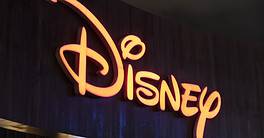With the duties of chief financial officers growing in scope and complexity, evaluation and pay packages are changing too.

What’s the biggest reason a company would replace its chief financial officer (CFO)? You might think it’s poor financial performance, but in executive search and recruiting firm Korn Ferry’s 2017 CFO Pulse Survey, only 8% of respondents named “not meeting a company’s financial goals.” Instead, 41% voted for “poor working relationship with the CEO and board.”
It’s a telling result. A CFO’s “chief” role may be financial, but in the current business environment he or she fills many other roles as well: contending with regulatory change, keeping an eye on dynamic trade patterns, staying up-to-date in the industry, adopting new technology and data modelling techniques, communicating enterprise-wide, and providing strategic direction for the business as a whole.
“This proves that the CFO role is about much more than profit or loss,” says Bryan Proctor, leader of Korn Ferry’s global financial officer practice, about the results. “It’s about helping lead the strategic trajectory of an organization for overall success and developing the relationships that are required.”

No surprise, then that there are changes afoot in the way organizations evaluate and reward CFO performance. A CFO Pay Trends 2016 report by Equilar found that the median CFO compensation for S&P 500 companies increased by 18.7% from $2.9 million in 2011 to $3.4 million in 2015. A key trend was the increase in the number of companies looking at performance-based rewards. Of the S&P 500 companies covered, 78.7% granted performance-based awards to their CFOs in 2015 as compared to 64.1% in 2011.
“As the responsibilities have expanded to cover a wider dimension of organization management, the evaluation criteria for a CFO’s performance has also become more complex and comprehensive,” says Bhavishya Sharma, managing director of Athena Executive Search and Consulting India and global vice chair of IIC Partners, ranked among the top ten executive search groups in the world. “CFOs are not only getting evaluated for managing the financial health of the organization, but also on their contribution to defining the strategic roadmap, driving business effectiveness, efficiency, etc.”
At the same time, CFOs themselves are starting to view their role in a new light. In a McKinsey & Company survey last December, more than 50% of the CFOs surveyed reported an average of five departments directly reporting to them, including their companies’ risk, regulatory compliance, and M&A. Over 38% said that they were responsible for IT with some even looking at very IT centric functions like cybersecurity and digitization.
Kumar Rajagopalan, CEO of the Retail Association of India (RAI), whose membership includes India’s biggest retailers, like ITC, Tata-owned Titan Industries, Future Group and Trent Hypermarket among others, notes that CFOs, especially in retail, are now expected to understand changing dynamics of customer behavior and be able to evaluate the company’s readiness to make the most of consumer insights as part of the finance function. “Concepts like lifetime value of consumers, modern consumer and supplier financing techniques, new supply chain techniques to lighten working capital while maximizing sales potential etc. have become key for CFOs in retail,” he says.
STILL, MONEY MATTERS
Despite the increasing demands, a focus on finance remains key for measuring CFO performance. In the 2016 Ernst and Young survey titled “The DNA of the CFO,” nearly six in 10 respondents attested to spending more time on cost management, risk management and cash flow over the last three years. Improving financial controls was a priority for half of the respondents.
“It’s still really important that people have good, old-fashioned basic finance,” Robin J Stalker, CFO of Adidas comments in the report. “We’ve seen what can happen if you don’t.”
Even the Mckinsey survey points to the fact that six in ten CFOs spent most of their time in traditional or specialty finance like treasury, audit or investor relations over the past 12 months.

Yet, this does not mean that non-finance-related skill are not essential. As per a 2017 Compensation survey conducted by the Association of Finance Professionals (AFP) those surveyed listed a number of essential skills for finance professionals, including the CFO, to succeed. Over half the respondents cited analytical skill as being key, with nearly half giving equal importance to leadership and people-management. Another third found communication skill to be equally important for managing internal and external stakeholders.
Respondents to the EY “The DNA of the CFO” study likewise cited skills in languages, conflict resolution, people, commercial sensibility, and strategic thinking among the qualities desirable in a CFO besides excellence in core finance function.
With the CFO’s role becoming more strategic, more like a CEO’s role, CFO pay packages are taking on some of the characteristics common to CEO packages. A report in June 2017 by Compensation Advisor Partners (CAP) found a continuing “emphasis of variable pay over fixed pay, and performance-based equity over time-based equity.” The CAP report mentions that nearly 80% of a CFO’s salary continues to be in the form of a bonus and variable Long Term Incentives (LTI), typically a mix of time-bound equity, stock options, or performance-based plans, in 2016. For LTI, performance plan was incorporated in 54% of CFO compensation plans in 2016, up from 46% in 2011. “The most notable change since 2011 has been a general shift from stock options to performance plans,” the survey notes. The stock options portion of LTI for the CFO decreased to 22% in 2016 from 32% in 2011.
But ultimately, the evolution of the CFO as a strategic business partner is irreversible. The list of one time CFOs that became CEOs like Pepsico’s Indira Nooyi, Rolls-Royce’s John Rishton and Shell’s Peter Voser continues to grow. For companies to ensure that they hire, retain and benefit from the best talent, it is imperative to devise CFO evaluation metrics that reflect their organizational needs—and pay packages to match.
Top reasons for company’s replacing CFOs |
|
|---|---|
|
41% |
Poor working relationship with the CEO/board |
|
14% |
Personality issues/inability to work well with or lead others |
|
14% |
Inability to directly connect finance efforts to tangible business outcomes |
|
9% |
Inability to align the organization around a change agenda that CFO was hired to drive |
|
8% |
Underperforming finance organization |
|
8% |
Not meeting the financial goals of the company |
|
5% |
Loss of confidence from investors |
|
Source: Korn Ferry CFO Pulse Survey 2017 |
|
Qualities identified by survey respondents as most desirable in a CFO |
|---|
|
First and foremost an extremely good finance professional |
|
A strong commercial sensibility |
|
Deep understanding of the business |
|
Good with people |
|
Able to think strategically |
|
Excellent communication skills — the ability to translate complex issues in a simple, straightforward way |
|
Able to manage conflict well |
|
A problem solver, not creator |
|
International experience |
|
Language skills |
|
Experience of running major projects |
|
A business analyst |
|
Able to manage stress and complexity under pressure |
|
Good health |
|
Operational experience |
|
Ability to adapt to change |
|
Experience of adversity |
|
Passion |
|
Source: (Ernst & Young’s The DNA of a CFO Survey 2016) |
Roles where the CFOs spent most time
|
|
|---|---|
|
45% |
Traditional Finance (eg: accounting, controlling, financial planning, budgeting, analysis) |
|
14% |
Specialty Finance (eg: audit, treasury, tax, investor relations |
|
41% |
Others |
|
Source: McKinsey Survey, December 2016: Are today’s CFOs ready for tomorrow’s demands on finance? |
|



